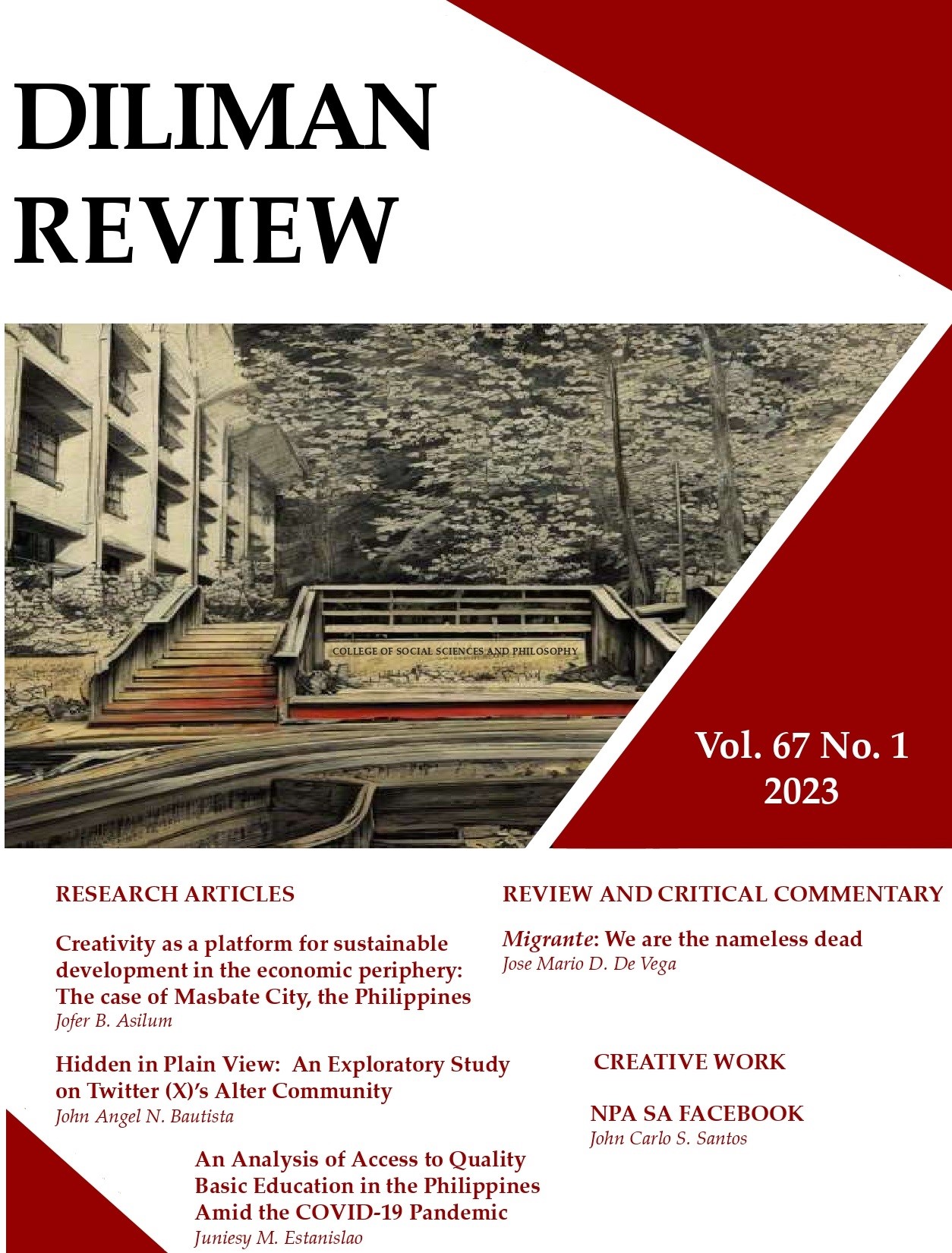An Analysis of Access to Quality Basic Education in the Philippines Amid the COVID-19 Pandemic
Abstract
The Philippine educational system drastically changed at the onset of the COVID-19 pandemic. Drastic changes and effects manifested throughout the entire system, particularly in the year 2020. The basic educational system, for that matter, has been limited in its movements due to the overwhelming effects of the pandemic. The importance of education, alongside the pursuit for the advancement of Sustainable Development Goals (SDGs), has been compromised due to unprecedented circumstances that resulted to inconsistencies in terms of policies, programs, and other mandates given by the state in ensuring the access of Filipino children to universal quality education. This paper analyzes the implementation of the Department of Education’s (DepEd’s) Basic Education Learning Continuity Plan (BE-LCP) as a response to the need to provide quality education amid the pandemic. Using purposive sampling, semi-structured interviews were conducted among public and private school teachers. The effects of the BE- LCP, its contradictions, and the implications of the praxis on the country’s educational system during the pandemic were also scrutinized by revisiting Pierre Bourdieu and Paulo Freire’s point of view on how the school and education can be utilized in transforming and reproducing social classes. Core concepts in Renato Constantino’s The Miseducation of the Filipino and The Anti- Social Filipino were likewise used to develop a framework that aims to address struggles faced by the Philippine education system amid the COVID-19 pandemic.


